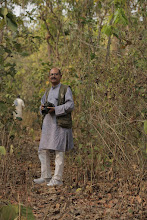When he set up the Satyagraha Ashram on the bank of the Sarbarmati river in Ahmedabad a decade later, Gandhiji nominated Imam Abdul Kadir Bawazeer, a Muslim priest who had courted jail in 1910 as a Satyagrahi in South Africa, as the vice-chairman of the ashram's managing committee. Bawazeer succeeded Gandhiji's secretary Mahadev Desai as the chairman of the ashram after the latter was arrested during the Salt Satyagraha in 1930. And, when Gandhiji was arrested, he nominated 76-year-old Justice Abbas Tayyabji to lead the Salt Satyagraha.
Gandhiji's Satyagraha ashram was a global village. Its inmates included Hindus, Jains, Muslims, Parsis and Christians. Even Miraben, the youngest daughter of an admiral of the British Royal Navy, was an ashram inmate, such broad was Gandhiji's concept of universal brotherhood.
When in 2002, a group of concerned citizens gathered at the satyagraha ashram to discuss ways to promote communal harmony, it was attacked by a mob crying 'Jai Shri Ram'. A few days back, the mob that had destroyed the mausoleum of Vali Deccani, a.k.a Vali Gujarati, the great poet credited with founding the composition of shaayari, was also shouting the same very war cry of 'Jai Shri Ram'.
Gandhiji had popularized the singing of the hymn:
"Raghupati Raghav Raja Ram, Pateet Paavan Sita Ram
Eeshwar, Allah Tere Naam, Sabko Sanmati De Bhagwan"
"Raghupati Raghav Raja Ram, Pateet Paavan Sita Ram
Eeshwar, Allah Tere Naam, Sabko Sanmati De Bhagwan"
The Muslim, Christian and Parsi inmates of the satyagraha ashram sang the hymn with equal devotion as it was a prayer to one God who was known by different names and whose blessings the hymn sought so that good sense prevailed among all human beings.
But since December 6, 1992, when fanatic Hindu mobs demolished the Babri mosque at Ayodhya as an act of revenge against the 15th Century Moghul emperor, Babar, the chant of 'Jai Shri Ram' has assumed violent connotation, striking terror among the non-Hindus, specially Muslims whom the Hindu fanatics chided as 'Babar ki Aulad' (Descendants of the Moghul emperor).
But since December 6, 1992, when fanatic Hindu mobs demolished the Babri mosque at Ayodhya as an act of revenge against the 15th Century Moghul emperor, Babar, the chant of 'Jai Shri Ram' has assumed violent connotation, striking terror among the non-Hindus, specially Muslims whom the Hindu fanatics chided as 'Babar ki Aulad' (Descendants of the Moghul emperor).

1 comment:
do v need another mahatma like Mohandas Karamchand Gandhi in our country. this is the burning question before the 'serious' citizens of this country. but after seeing today's secenario in our country, where people are hell-burnt on dividing each and every community in the name of poitics or otherwise, this seems a hercuelan task. but there are still majority of the population who can thwart such misdeeds of the selected few.
lets not say, v need another mahatma. but v vl only say and practise in our life whatever our great mahatmas have said since centuries ago--be it mahatma gandhi, buddha, shankracharya, nizamuddin aulia, mother teresa etal.
then only the meaning of "raghupati raghav raja ram...." vl b fulfilled
Post a Comment